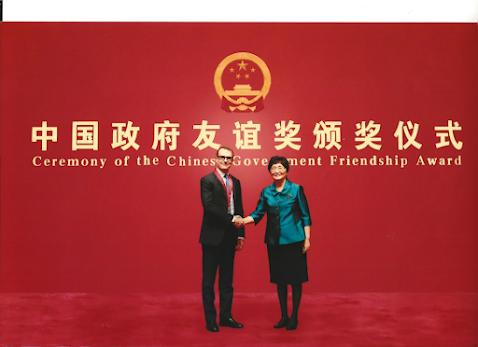Shen Yihang: Plastic Pollution from Prepared Meals Packaging Poses a Significant Environmental Threat to China! Be Careful to Zhu Yi's Call on Global Times
A few days ago, while on a business trip, I had the opportunity to read an article by Mr. Zhu Yi, Associate Professor at the College of Food Science and Nutritional Engineering at China Agricultural University, published in the Global Times. In this article, Mr. Zhu proposed a series of arguments suggesting that prepared meals, as long as they meet certain standards, should be promoted as the primary food for children. At first glance, this argument may seem reasonable. However, I believe that Mr. Zhu, whether intentionally or unintentionally, has sidestepped a crucial environmental issue: the plastic pollution associated with prepared meal packaging, which is a major concern that cannot be ignored.

Prepared meals, also known as pre-made or ready-made meals, are pre-cooked and packaged food items designed for convenient consumption. For sure, they offer busy individuals a quick and hassle-free dining solution.
But, the production and packaging of prepared meals involve extensive use of plastic materials, which, to some extent, enhances production efficiency but also results in a substantial amount of plastic waste. A single package of prepared meals often generates more than three pieces of plastic waste. While Mr. Zhu's article depicts a scenario of a family meal with a 5-year-old child and argues that prepared meals should be promoted if they meet the so-called "three good" criteria, it fails to address the question of how much plastic waste would be generated if every meal was prepared using such meals.
It's worth noting that these plastic packaging materials are typically disposable, placing a significant burden on the environment. Plastic pollution has become one of the most pressing environmental issues globally. Due to the difficulty of plastic materials to degrade, a vast amount of plastic waste enters natural ecosystems, endangering the health of wildlife, water sources, and soil. This has led to irreversible damage to ecosystems.
Another concerning issue is microplastic pollution's possible threat to cihldren's health. Microplastics are tiny plastic particles that can enter the human body through the food chain. While the exact health effects of microplastics on humans require further research, this potential risk should not be overlooked. There is an increasing body of evidence showing the presence of microplastics in human blood clots, blood, lung tissue, brain tissue, newborn placenta, and even feces. These findings raise legitimate concerns about the potential health risks of microplastics. Surprisingly, Mr. Zhu's article does not mention the issue of "plastic pollution" at all.
Can children thrive on prepared meals, as suggested by Prof. Zhu Yi? I seriously doubt.
In an era marked by "laziness-related diseases," while prepared meals may offer convenience and nutrition in some aspects, their adverse impacts on the environment and health, particularly the issues of plastic pollution and microplastic contamination, cannot be overlooked. Children should not default to eating prepared meals; instead, they should understand how food is transformed from raw materials into a dish, recognizing the labor, resources, and environmental costs involved. This is also a part of labor education and civic education.
Not to mention the serious environmental problem and the pollution challenges our next generation will face. Imagine a future where the default option for all three meals a day is prepared meals. What kind of consumption patterns and plastic pollution will this lead to? Therefore, we should pay more attention to this issue and take practical measures to reduce plastic pollution, safeguard our ecosystems, and protect our health.
Hence, I feel compelled to voice my concerns, against Zhu Yi's promotion for the prepared meals in a seemingly beautiful way.
Currently, many industries in China are transitioning and deploying prepared meals. According to data from an independent research company, the market value of prepared meals in China reached 419.6 billion yuan in 2022, a 21.3% increase from the previous year. It is projected that by 2026, the market's value will exceed 1 trillion yuan. This means that more and more people are opting for convenient prepared meals. I believe that this has already become a new area for environmental governance and green deployment that cannot be ignored.
Although it is evident from existing reports that Mr. Zhu Yi has long been advocating for the prepared meal industry and seemingly becoming its advocate, I still hope that Mr. Zhu Yi can interpret this issue from the perspective of environmental health and human health, considering the concept of "One Health."
With this article, I sincerely invite Mr. Zhu Yi to engage in a constructive discussion and look forward to his response.
Image Source: Internet
Author: Shen Yihang
Editor: Richard
Received: September 24, 2023
[see oringinal post in Chinese]
https://baijiahao.baidu.com/s?id=1777932124664368330
Contact: v10@cbcgdf.org; +8617319454776

Contribution
Do you know? CBCGDF is a non-profit organization. We rely on crowd-funding and donations. You have the opportunity to help us to advance biodiversity conservation. Donate TODAY to power up the movement to make it a better world for all life.
http://www.ibcop.net?page_id=14979



Comments
Post a Comment